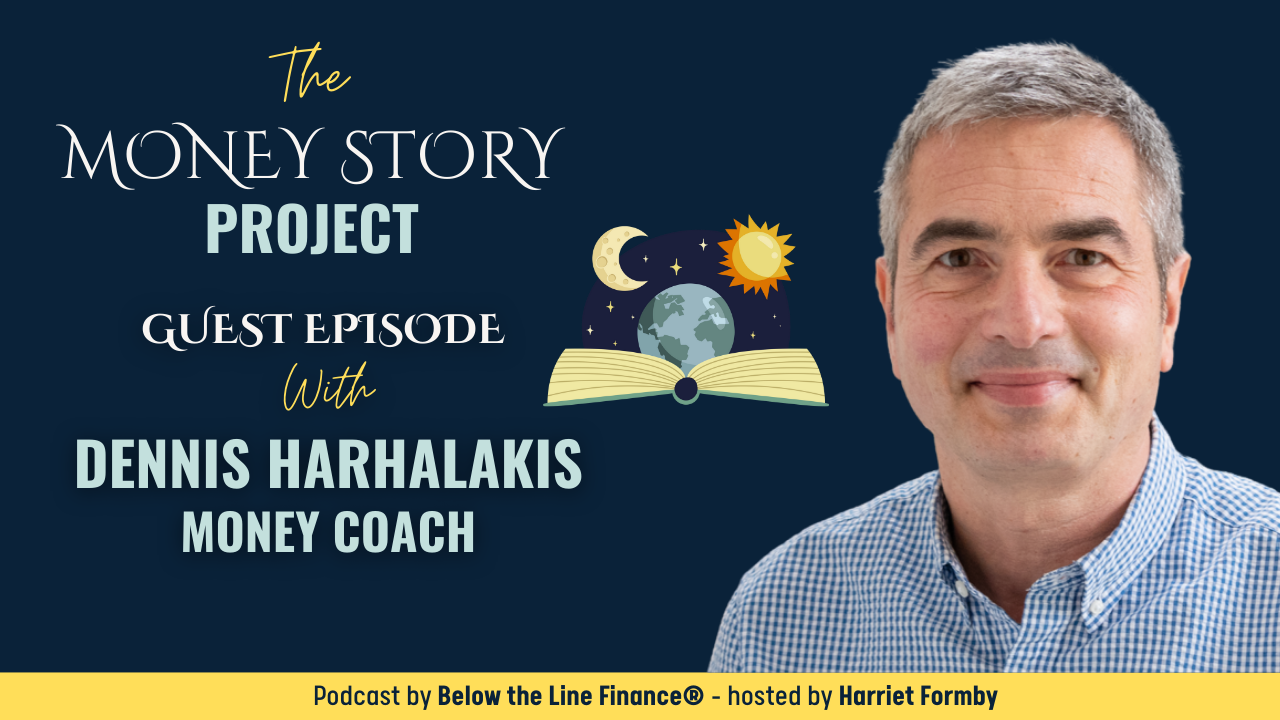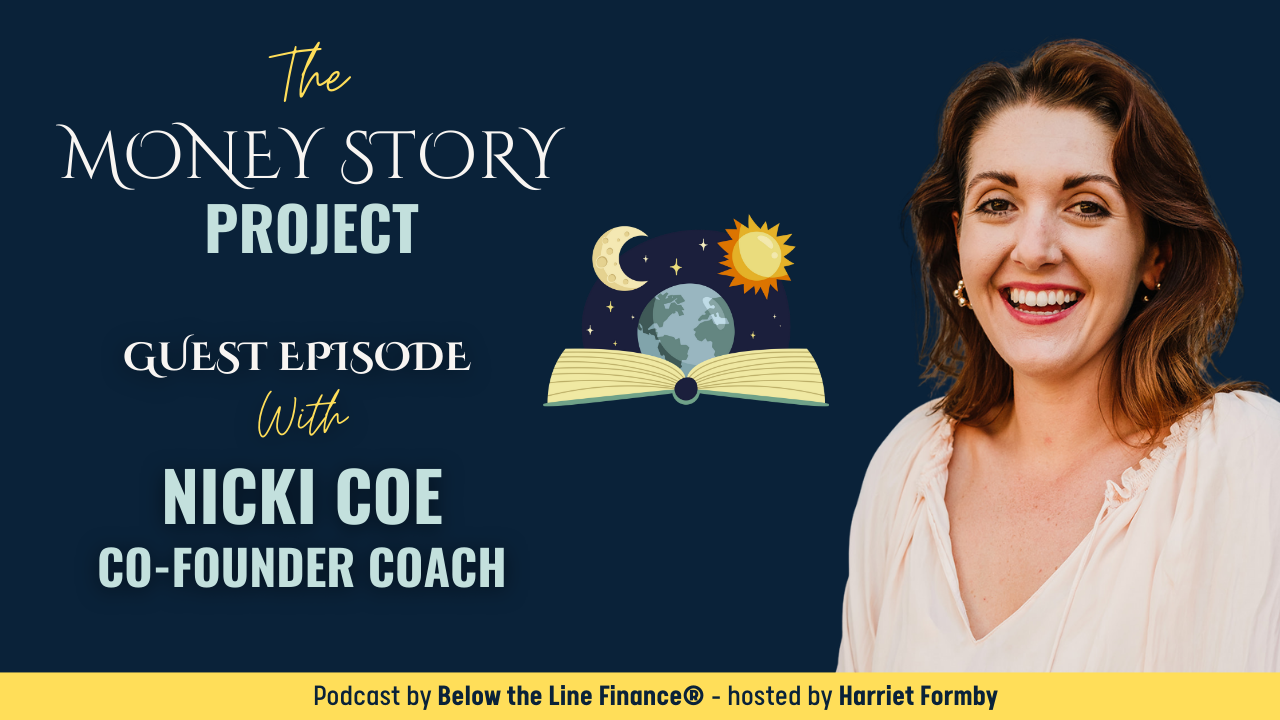Summer Fear, Legacy & Inclusion: Beyond Pricing - with Sumi Fitzgerald
DEI consultant Sumi Fitzgerald on seasonal income dips, cultural expectations, and finding safety in entrepreneurship - and why accessibility in business is about much more than lowering prices!
Themes: seasonal slowdowns & the “summer fear” • intergenerational safety & legacy • cultural scripts about “what money is for” • renting vs. rootedness • business ownership as control • paying yourself & Profit First (adapted) • pricing, equity and the self-employed gender pay gap • inclusion levers beyond just price • the missing data in small business
“Money feels like this unwieldy thing I’m trying to control… and I start feeling the fear.”
About Sumi
Sumi Fitzgerald is a Diversity, Equity and Inclusion (DEI ) consultant with deep experience across both large organisations and the small-business world. They’ve spent years training hundreds (probably thousands) of people and auditing organisations with stadiums worth of staff, and now bring that expertise to solo founders and small, service-based businesses - helping them cut through the fear and overwhelm to build inclusive practices that genuinely work.
In this conversation, Sumi shares candid stories about cultural expectations, legacy, and why self-employment can feel safer than a job plus a clear-eyed take on “accessible pricing”, equity, and what we’re not measuring in the small business economy.
Check-in: when you hear money, what comes up?
Sumi: When you said the word money, I had this visceral response - it just kind of went ahhh! Right now, we’re recording in the middle of school summer holidays. It’s a time of year where I feel really out of control with money, like my hands are tied behind my back. Money feels unwieldy, and I start feeling the fear.
“I’ve got that summer fear where things go a little bit quiet… money feels elusive and scary.”
It does get a little better every year, but I still have that “summer fear”: things go a bit quiet, income dips, and the little nagging thoughts creep in - maybe it’s time to go get a proper job! It’s much lower-level than it used to be, but money still feels elusive and quite scary.
Early scripts: culture, class, and “what money is for”
Sumi: My mum’s side of the family are Sri Lankan Tamils; my dad was white British Brummie. He died 15 years ago, and my family life is very much with my mum’s side. Mum came to the UK in the ’70s to study - and she has that classic “worked two jobs while I studied” story.
In our Tamil circles, money had clear “rules”:
- Spend on property and education.
- Focus on legacy - what you leave behind. My mum often says: I’ve worked my whole life so that you can have this when I’m gone.
- Be generous, but in specific ways: bringing family over, paying into savings accounts for the children’s university, not buying “nice things.”
At the same time, I grew up in a white, middle-class, affluent area. Those messages clashed. I remember earning £60 a week at a beauty salon and spending it all on suede slouch boots. My sister really told me off. She didn’t say “frivolous,” but that was the message: there are right and wrong ways to spend money.
“Your money is for other people - for helping family - and for what you’ll leave behind.”
We didn’t go out for coffees - why, when there was coffee in the cupboard? You find the bargains, you’re frugal, you invest in the future, and your money is for other people.
It even spills into my friendships - I joke that I ‘hound’ a close friend about the financial plans she has for her child’s future, because I can’t switch off that anxiety about legacy and security for the next generation.
The rug being pulled: why safety sits at the centre
Sumi: There’s an undercurrent in my family history: things being snatched away. Two of my uncles were on the last flight to the UK before visa restrictions changed. My great-grandfather was working in Malaysia, sending money home - one day it just stopped. He had died, and no one told the family. My granddad had to start work immediately.
There are also stories of mobs dragging the family’s furniture into the street and setting it on fire. So the message became: things will be taken away.
That’s why renting was unbearable for me. And when I say unbearable, I mean every day I thought about it. Every single day: the landlord could just sell up and tell us to leave. I couldn’t put down roots, couldn’t feel at home. That fear of the rug being pulled is right there under the surface.
“Every day I thought: the landlord could just sell up and tell us to leave.”
Why self-employment can feel safer
Sumi: Running your own business is uncertain - but for me, employment felt like the bigger risk. With a job, an employer can take it away overnight. With my business, nobody can just call me into an office and say, “we’ve cut your role.” That control feels like security.
It’s a double-edged sword: I can choose to launch and try to make money if I need it, but sometimes the launch just flops. So I swing between I have control and I have none.
Before I went self-employed, I was on £54k in the charity sector at ‘head-of’ level. I couldn’t justify leaving. Then in the same week, I found out I was pregnant and being made redundant. Not a fun week! But when I sat down with the childcare maths, I realised: if I took a job, I’d be left with about £300 a month. So I reframed: all I needed was to make £300 a month in my business. That made self-employment make sense.
“Nobody can take my business away from me.”
Over time, my year-on-year income has stabilised - even though month to month it still varies wildly.
Spreadsheets, Profit First, and finally paying myself!
Sumi: I don’t bury my head in the sand - I go full spreadsheets, control every penny. But for a long time I couldn’t pay myself. I was anxious: what if there’s an expense I can’t cover? That vigilance isn’t just logical - it’s driven by anxiety, shaped by family history where things could be taken away overnight. So I left the money in the business, invested in tools or training, but avoided paying me.
“I stumbled across Profit First… now I’ve got my own version of it.”
When I stumbled across Profit First, it gave me the framework I needed. Not the exact percentages - those didn’t work for me - but the principle did. I made my own version.
Now I pay myself. I even have a personal “fun money” allowance the same as my husband’s. That was huge - for years, he had one and I didn’t. The first time I paid for a family holiday through the business felt amazing.
Pricing, equity, and the trap of “just charge less”
Sumi: The place money shows up most in my DEI work is pricing. Particularly if you’re a woman or socialised as one, the conditioning is to nurture, to care, and not to expect pay. So charging feels not okay.
What I see a lot is people saying: equity means keeping my prices as low as possible so I’m accessible to everyone. But that’s not sustainable. The gender pay gap is around 17% for employees — and closer to 43% for self-employed people. We already have a bigger gap, so the answer can’t just be “drop your prices.”
“The gender pay gap is 17% for employees — and 43% for the self-employed.”
Inclusion beyond pricing: harder conversations
Sumi: Price is often the easiest thing to focus on. It feels tangible, like: if I just charge less, my business is more accessible. But sometimes that’s really a shield - a way to avoid looking at the harder, stickier stuff underneath.
“Sometimes ‘accessible pricing’ is a shield from the harder money work.”
Because accessibility isn’t only about money. It’s also about whether your systems are ableist, whether your defaults centre whiteness, whether there are practices in your business that quietly exclude people. Tackling those things can be more important - and more impactful - than shaving money off your rate.
For me, it’s been about balance. I offer payment plans. I’ll use discount codes on digital downloads. But when it comes to services where I’m trading hours for money, I don’t discount - my working time is limited to school hours, and I’m still working towards full financial safety. We make ends meet, but we’re still one boiler breakdown away from having a problem.
The missing data: what we don’t know about small business
Sumi: In big organisations, you can audit - look at pay gaps, recruitment, promotions. In small business, we don’t have that data. There’s secrecy around pricing. We don’t really know what’s going on.
“We don’t have the data - what’s actually going on in small business?”
I keep thinking about that News clip where a woman realised live on air that she wasn’t being paid for her appearance, while the male guest was. She hadn’t even known there was a fee on the table. That’s the kind of hidden inequality that can happen in small business too - and without data, it’s almost impossible to spot.
I’d love to run a mini-study - an audit of our small-business bubble. What are people actually being paid? What opportunities are open to who? How does identity change the picture? Until we measure it, we’re in the dark.
"If money were a person… what would you say to them?"
Sumi: I have too much to say! But honestly, I’d probably just tell money: I recorded a podcast with Harriet, go listen to it. Because we’re all having problems with you!
🎧 Listen to the full podcast episode here: Money Story Project Podcast with guest Sumi Fitzgerald
Resources & how to connect with Sumi
- Free workshop (coming up in October 2025): Find Your Inclusion Leaks & Your Missing Clients - a free hour to uncover where potential clients might be slipping away. Best place to hear first: Instagram @sumi.does.dei or join Sumi’s email list from the website
- Free guide: Five Things I Have to Tell Almost Everyone - practical fixes you can implement straight away.
Connect: Linkedin Instagram Website
Tell your story: Apply to be a guest










